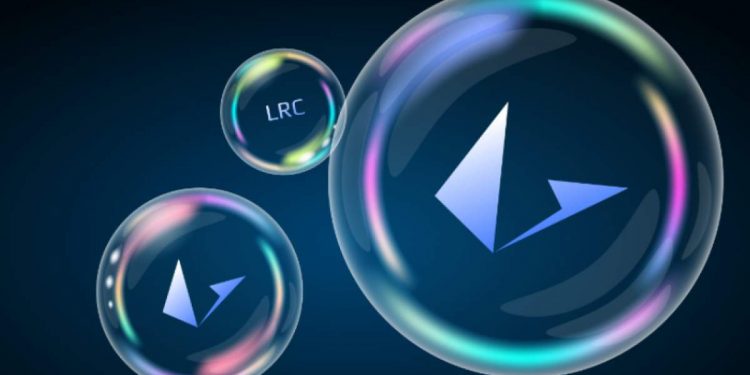Ethereum is a decentralized exchange that has been suffering from high transaction fees and limited scaling perspective since its foundation. Loopring, a Layer 2 protocol built on Ethereum, has the potential to transform the way future decentralized exchanges are built and more specifically, to improve Ethereum’s performance.
This article focuses on three of the main benefits of the Loopring protocol. Read on to learn more about how Loopring can benefit your cryptocurrency exchanges.
Moreover, you’ll learn about the features of Loopring that you may be missing on Ethereum.
On-chain data availability
In order to make on-chain data available, the Loopring network must be secure, scalable, and decentralized. The network’s ring-coordinating system and cross-chain capability are key features, but they aren’t sufficient by themselves.
The technology is more powerful when it is integrated with the Ethereum blockchain and other cryptocurrencies.
Loopring is a blockchain protocol that merges these functions into one open protocol. This will speed up the adoption of blockchain technology and improve efficiency across the Ethereum ecosystem.
In addition to a decentralized exchange platform, the network also supports multiple tokenized assets. The first of these is Ethereum. By allowing multiple cryptocurrencies, a single token allows users to transact in several currencies, including a cryptocurrency that has many uses.
By making on-chain data available, Ethereum users can trust that their transactions are secure. To ensure that on-chain data is 100% verifiable, Loopring has developed a blockchain protocol with a secure on-chain protocol.
To operate exchanges on the network, operators must stake at least 250,000 LRC or lock up 1 million LRC. Operators who refuse to use proofs can be penalized by the protocol. If an exchange operator doesn’t follow its rules, the protocol will confiscate their LRC deposits, which are then distributed to their LRC holders.
zkRollups
The Loopring token is an Ethereum-compatible crypto that integrates cutting-edge crypto into its platform. zkRollups, or zero-knowledge rollups, utilize Ethereum’s zero-knowledge proofs to improve the Ethereum blockchain’s suitability for DeFi applications. Loopring has already been compared to competing cryptos such as xDai, Plasma, and Optimistic Rollups.
This protocol enables off-chain transactions using zero-knowledge proofs. The Loopring Wallet is a mobile application that has a built-in Ethereum Layer 1 and Layer 2 social recovery smart wallet. The Loopring Protocol also includes smart contracts to ensure user self-custody of their funds. It is also possible to use Loopring Wallet in conjunction with Ethereum. Listed below are the benefits of using Loopring in your business.
On-chain/Off-chain switch
The Loopring protocol is a new way to enable multiple transactions to make it onto the Ethereum blockchain and bypass the costs and restrictions of trading two-token pairs. This will drastically improve liquidity. Loopring also employs a unique solution to prevent front-running. And, best of all, Loopring can be deployed on any blockchain with smart contract functionality.
That means it can be incorporated into any exchange.
The Loopring network has gone through two main versions, with the first version being a hybrid DEX protocol that settled and managed trades off-chain. The second version relied heavily on the blockchain for some of its mission-critical functions.
The on-chain portion of Loopring handles the matching engine and relaying of orders, while the off-chain portion is primarily responsible for the exchange’s order book. This is where its on-chain/off-chain switch comes into play.
Order sharing
Loopring is basically a service that lets you share your orders with other people. Once you’ve placed your order, the system will filter out the incomplete orders and add them to another ring. This way, everyone will receive the full amount of their order. It works like a stock market and lets you share the profits equally. This feature makes it easy to share your orders with other people. The best part is that Loopring allows you to share the same order with a lot of people at once.
With Loopring, any member of your team can share and approve orders. All the traders have to do is register on the network and submit a request. The other parties will see the request and will be notified. The system will then merge their orders into one order ring.
A smart contract on Loopring will approve the order. This means that there’s no need to deal with multiple exchanges. And since no one owns the order book, you’ll never see any extra fees.
Blockchain agnostic

The network is an open source blockchain that can be used on any type of blockchain, not just Ethereum. It can be deployed on any type of blockchain that supports smart contracts, including Qtum, NEO, and Ethereum. The Loopring token, LRC, is a native ERC-20 token that allows users to transact on the platform.
Loopring uses a decentralized exchange protocol called Ethereum to pool orders and fill them via different exchange order books. The protocol can be implemented on both centralized exchanges and decentralized exchanges, giving investors access to liquidity across the blockchain and exchanges. It is also a blockchain agnostic, meaning any platform that supports smart contracts can integrate with it.
Final thoughts
Loopring does most of its work off the Ethereum blockchain. This includes trade and transfer settlement. This makes a huge difference in how much gas is used and how much it costs to do a transaction overall.
LRC works better than other decentralized exchanges because it creates a “fast lane” where transactions are grouped and processed off-chain to avoid Ethereum’s crowded network, lowering costs and speeding transactions.
The current price of Loopring’s token is $0.41.
Disclaimer: The author holds Loopring as part of a crypto portfolio.










